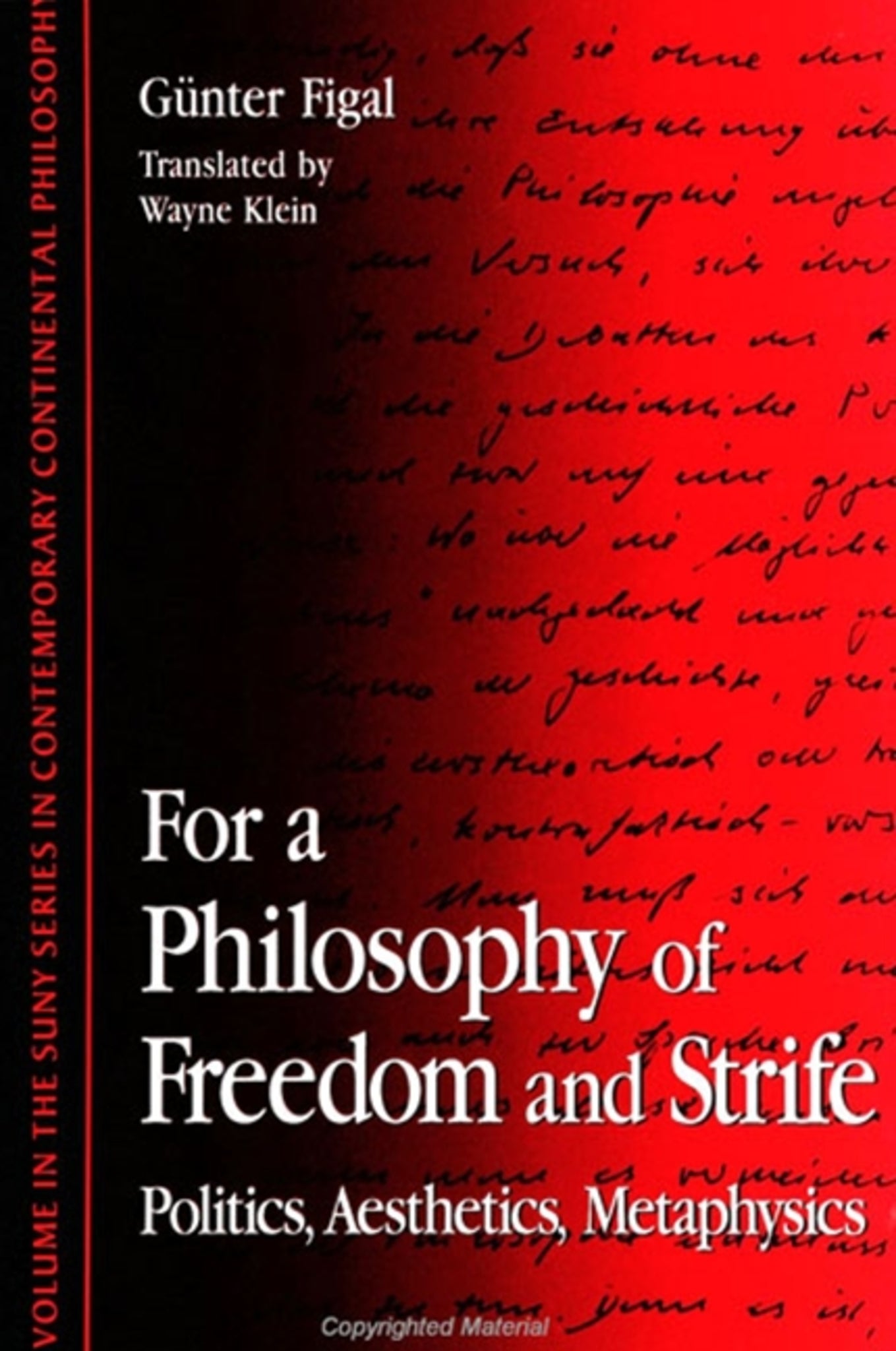We're sorry. An error has occurred
Please cancel or retry.
For a Philosophy of Freedom and Strife

Some error occured while loading the Quick View. Please close the Quick View and try reloading the page.
Couldn't load pickup availability
- Format:
-
04 December 1997

This first book-length work of the prominent German philosopher Gunter Figal to appear in English offers a radical defense of metaphysical philosophy in the era of postmodern thought.
This first book-length work of the prominent German philosopher Gunter Figal to appear in English offers a radical defense of metaphysical philosophy in the era of postmodern thought. For Figal, metaphysics does not represent an anachronistic and pernicious mode of thought that ought to be overcome but rather is a type of thinking that proceeds from a recognition of the necessary coherence of everything with its opposite. It is this agonistic relationship of opposites that Figal, following Heraclitus, terms strife. Rather than regarding the conflict of opposites as necessarily resulting in the dissolution of meaning and sense, as many contemporary thinkers maintain, Figal contends that sense and meaning can only come into existence metaphysically, that is to say, as a consequence of strife. And, the context within which strife occurs is freedom. Using these concepts of strife and freedom, Figal proposes new and provocative readings of Plato, Hegel, Nietzsche, and Kierkegaard, as well as of some of the most controversial figures of twentieth-century philosophy.


"This book will take its rightful place as a leading contribution to the burgeoning resurgence of interest in political philosophy from a continental perspective. The author operates out of an hermeneutic perspective on political philosophy, but he has an original and radical understanding of hermeneutics and metaphysics. Figal's thesis is that ontology and metaphysics, rightfully understood, offer resources for political thought that go further than any other current theory to offer a positive account of the strife between individuality and community, freedom and truth, empowerment and violence, people and institutions, action and responsibility. The point that Figal makes in each of his essays is that this strife and the apparently contradictory poles that seem to make any coherent explanation of free political life impossible are actually what produce human community. The essays are impressive in their scope, spanning from hermeneutics to phenomenology to critical theory. Along the way Figal offers an enlightened discussion of modernity and such critics of modernity as Friedrich Nietzsche, Carl Schmitt and Ernst Jünger." —Walter Brogan, Villanova University
Preface
1. On the Silence of Texts: Toward a Hermeneutic Concept of Interpretation
2. An Essay on Freedom: Ontological Considerations from a Practical Point of View
3. The Intensity of the Political: Carl Schmitt's Phenomenology of Enmity and the End of the Ideological World Civil War
4. Public Freedom—the Strife of Power and Violence: On Hannah Arendt's Concept of the Political
5. The Intermediate Time of Modernity: History and Nihilism, Europe and Fatherlands, in Nietzsche's Perspective
6. Type and Nuance: Unlimited and Limited Aesthetics with Nietzsche
7. Stereoscopic Experience: Ernst Junger's Poetics of The Adventurous Heart
8. Aesthetic Experience of Time: Adorno's Avantgardism and Benjamin's Correction
9. Art as World Representation
10. History as Destiny and the Presence of History: Determining Philosophy with and without Hegel
11. Last Gods: Hermeneutic Theology in Nietzsche and Heidegger
12. The Absolute Particular: Individuality and Religion after Kierkegaard
13. Trusting the Logos: On Plato's Rhetoric of Philosophy
Notes
Index



